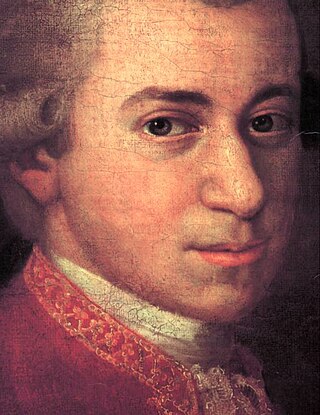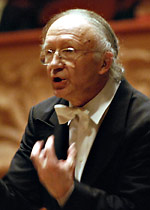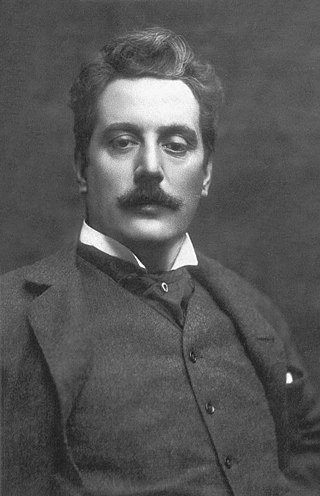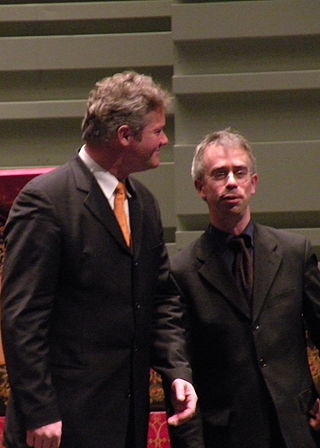Related Research Articles

Werner Herzog is a German filmmaker, actor, opera director, and author. Regarded as a pioneer of New German Cinema, his films often feature ambitious protagonists with impossible dreams, people with unusual talents in obscure fields, or individuals in conflict with nature. His style involves avoiding storyboards, emphasizing improvisation, and placing his cast and crew into real situations mirroring those in the film they are working on.

Theobald Theodor Friedrich Alfred von Bethmann Hollweg was a German politician who was chancellor of the German Empire from 1909 to 1917. He oversaw the German entry into World War I and played a key role during its first three years. He was replaced as chancellor in July 1917 due in large part to opposition to his policies by leaders in the military.

Luciano Pavarotti was an Italian operatic tenor who during the late part of his career crossed over into popular music, eventually becoming one of the most acclaimed tenors of all time. He made numerous recordings of complete operas and individual arias, gaining worldwide fame for his tone, and gaining the nickname "King of the High Cs".

Hans Werner Henze was a German composer. His large oeuvre is extremely varied in style, having been influenced by serialism, atonality, Stravinsky, Italian music, Arabic music and jazz, as well as traditional schools of German composition. In particular, his stage works reflect "his consistent cultivation of music for the theatre throughout his life".

Zaide is an unfinished German-language opera, K. 344, written by Wolfgang Amadeus Mozart in 1780. Emperor Joseph II, in 1778, was in the process of setting up an opera company for the purpose of performing German opera. One condition required of the composer to join this company was that he should write a comic opera. At Salzburg in 1779 Mozart began work on a new opera. It contains spoken dialogue, which also classifies it as a Singspiel. Only the arias and ensembles from the first two acts were composed. Missing are an overture and third act.

Friedrich "Fritz" Karl Otto Wunderlich was a German lyric tenor, famed for his singing of the Mozart repertory and various lieder. He died in an accident aged 35.

Heinz Robert Holliger is a Swiss composer, virtuoso oboist, and conductor. Celebrated for his versatility and technique, Holliger is among the most prominent oboists of his generation. His repertoire includes Baroque and Classical pieces, but he has regularly engaged in lesser known pieces of Romantic music, as well as his own compositions. He often performed contemporary works with his wife, the harpist Ursula Holliger. Many composers have written works for him, including Berio, Carter, Henze, Krenek, Lutosławski, Martin, Penderecki, Stockhausen and Yun. A noted composer himself, Hollinger has written works such as the opera Schneewittchen (1998).

The Bassarids is an opera in one act and an intermezzo, with music by Hans Werner Henze to an English libretto by W. H. Auden and Chester Kallman, after Euripides's The Bacchae.

Giacomo Puccini's Messa or Messa a quattro voci is a Mass composed for orchestra and four-part choir with tenor and baritone soloists. Strictly speaking, the piece is a full Mass, not a true Messa di Gloria.

Karl V. is an opera, described as a Bühnenwerk mit Musik by Ernst Krenek, his opus 73. The German libretto is by the composer. His student Virginia Seay collaborated with him on the English translation of the libretto.

Phaedra is a 'concert opera' in two acts by Hans Werner Henze. Its first performance was given at the Berlin State Opera on 6 September 2007. The work is a co-commission and co-production with the Berliner Festspiele, Théâtre de la Monnaie, Brussels, Alte Oper Frankfurt and the Vienna Festival.

Jonas Kaufmann is a German-Austrian tenor opera singer. He is best known for the versatility of his repertoire, performing a variety of opera roles in multiple languages in recital and concert each season. Some of his standout roles include Don José in Carmen, Cavaradossi in Tosca, Maurizio in Adriana Lecouvreur, Don Alvaro in La forza del destino, Siegmund in Die Walküre, and the title roles in Parsifal, Werther, Don Carlos, and Lohengrin. In 2014 The New York Times described Kaufmann as "a box-office draw, and... the most important, versatile tenor of his generation."
Werner Güra is a German classical tenor in opera, concert and Lied, also an academic teacher in Zurich.

Hans Jörg Mammel is a German tenor in opera and concert.
Ilse Hollweg was a German operatic coloratura soprano. A member of the Deutsche Oper am Rhein, she appeared at major European opera houses and festivals including the Bayreuth Festival and the Glyndebourne Festival.

Horst Laubenthal, real name Horst Neumaier, is a German operatic tenor and academic voice teacher. He is known internationally, both as an opera singer especially in Mozart roles such as Belmonte, Don Ottavio and Tamino, and as a concert and recital singer, with a focus on works by Johann Sebastian Bach. He has appeared at major opera houses and festivals, including the Glyndebourne Festival and the Salzburg Festival, and made many recordings, including rarely performed works such as Korngold's Violanta.
Werner Enders was a German operatic tenor and member of the Komische Oper Berlin.
Hubert Giesen was a German pianist.
Gottfried Hornik is an Austrian operatic baritone and voice teacher. He was a member of the Vienna State Opera for 25 years and appeared worldwide in leading roles. His signature role was Beckmesser in Wagner's Die Meistersinger von Nürnberg. He was awarded the title of an Austrian Kammersänger.
Fredegundis is a 1922 German-language opera in three acts by the Austrian composer Franz Schmidt, to a libretto by Bruno Hardt-Warden and Ignaz Michael Welleminsky after Felix Dahn. Schmidt's second and final opera, the plot concerns Fredegund, the widow of 6th century French King Chilperic I.
References
- ↑ "Obituaries Werner Hollweg". The Independent . 5 January 2007. Retrieved 3 August 2018.
- ↑ "Tenor Werner Hollweg gestorben". Der Tagesspiegel (in German). 2 January 2007. Retrieved 3 August 2018.
- ↑ "Werner Hollweg zum 70. Geburtstag". oe1.orf.at (in German). Retrieved 3 August 2018.
- ↑ "Werner Hollweg". The Times. 26 January 2007. ISSN 0140-0460 . Retrieved 3 August 2018.